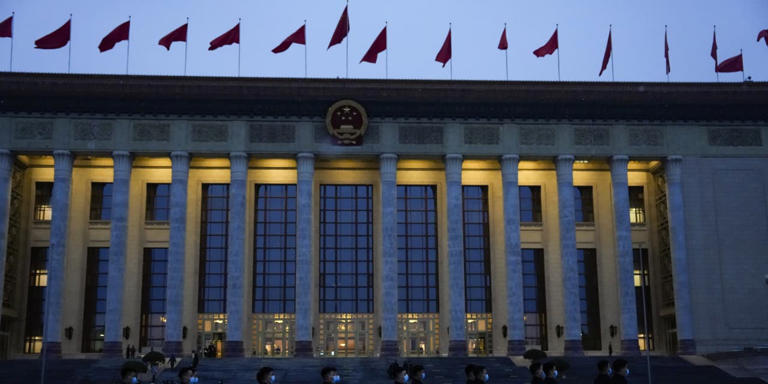Premier Li Qiang announced China’s official growth target for this year at around 5%, underscoring a focus on both security and economic stability in the government’s plans. He reiterated the continuation of a “pro-active fiscal policy and prudent monetary policy,” indicating continuity in the leadership’s strategy of pursuing “high-quality” development.
Despite efforts to stimulate consumer spending, the anticipated consumer-led recovery following the easing of anti-pandemic measures in late 2022 faltered in the midst of last year. The real estate sector is experiencing a crisis due to numerous developer defaults triggered by a crackdown on excessive borrowing. Plummeting housing prices and concerns about employment have dampened consumer confidence and spending.
To bolster economic growth, the government intends to issue 1 trillion yuan (approximately $139 billion) in “ultralong special treasury bonds” in 2024 and over the subsequent years. This additional government spending aims to support the economy amidst declining growth.
Furthermore, Li mentioned plans to offer assistance to local governments facing economic challenges, signaling Beijing’s commitment to mitigating the impact of mounting debts on financially strained cities and regions.
Premier Li also disclosed that China intends to allocate 1.67 trillion yuan ($231 billion) towards defense spending this year, marking a 7.2% increase consistent with the growth rate observed in 2023.
In 2021, China’s economy expanded by 5.2%, rebounding from a sluggish 3% growth rate in 2022, a period marked by severe disruptions due to the COVID-19 pandemic. During 2022, extensive lockdown measures and business closures were implemented, impacting economic activity.
Emphasizing the need for effective policy implementation, Li underscored the importance of coherence between policies and actions at the local level. He emphasized the government’s commitment to progress and stability, highlighting stability as the foundation for all endeavors.
Li emphasized the significance of transparent and consistent policy communication to foster a stable and predictable environment. These remarks were made during his address on government plans at the National People’s Congress held in the Great Hall of the People.
Premier Li emphasized the need for policies to be more targeted and reflective of the expectations of both enterprises and the general populace when setting priorities. His address was delivered to nearly 3,000 delegates of the National People’s Congress and approximately 2,000 members of a parallel advisory body at Beijing’s Great Hall of the People, situated adjacent to Tiananmen Square.
Under the leadership of China’s most influential figure in recent history, Xi Jinping, who heads the party, individuals like Li have been appointed to key positions to bolster the party’s grip over economic and societal affairs. Xi, aged 70, is currently serving his third five-year term as party general secretary and may continue in that role indefinitely.
The national congress proceedings, which span approximately a week, constitute China’s most significant political gatherings each year. While the congress primarily endorses policies established by top leadership, it serves as a platform to showcase the party’s achievements and garner support for its objectives.
Li outlined the government’s strategies to mitigate risks in the real estate sector and address mounting debts in both the property market and local governments burdened by high spending on pandemic containment measures and reduced tax revenues due to diminished land sales.
As part of efforts to reform the housing market, Li disclosed plans for a “new development model,” including the construction of government-subsidized housing. This aligns with reports suggesting authorities intend to utilize public funds to purchase some of China’s surplus unoccupied properties and repurpose them as affordable housing.
Additionally, Li unveiled initiatives such as a “worry-free consumption” program aimed at stimulating spending, encouraging households to upgrade vehicles and appliances. He underscored the government’s heightened focus on employment, particularly crucial amidst job uncertainties stemming from the pandemic and the challenges faced by young graduates in securing employment.
Despite acknowledging potential challenges, Li reiterated the importance of maintaining confidence in China’s economic resilience, citing its vast market, advanced manufacturing capabilities, and substantial workforce. He emphasized the unyielding trajectory of economic recovery and long-term growth, urging greater confidence and self-assurance moving forward.
